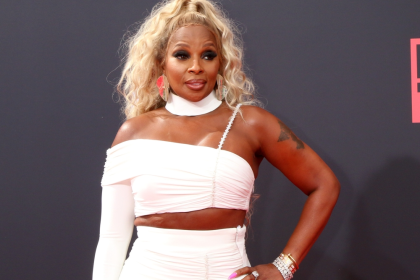In today’s fast-paced world, the traditional timeline for marriage is shifting. More and more individuals are choosing to delay marriage until their 30s, prioritizing personal growth, career development and financial stability. While societal norms once encouraged early marriage, there is growing evidence that waiting can have long-term benefits. This article will explore five compelling reasons to consider delaying marriage until you’re at least 30, a decision that can lead to a more fulfilling, stable and successful union.
1. Personal growth and self-discovery
Understanding who you truly are
In your 20s, you are often still figuring out who you are, what your passions are and what you want from life. Personal growth takes time, and rushing into marriage can prevent you from fully exploring your own identity. By waiting until you’re at least 30, you allow yourself the space to develop emotionally, mentally and spiritually.
During your 20s, you may face challenges and experiences that shape your personality and values. These life lessons are essential to becoming the best version of yourself, and they will directly impact your ability to be a supportive and understanding partner. Waiting until you’re more secure in your identity can lead to a stronger, more grounded relationship.
Avoiding the pressure of settling
Many people feel pressure in their 20s to get married because of societal expectations or seeing their friends tie the knot. However, getting married for the wrong reasons — like fear of being left behind — can lead to regret later on. By delaying marriage, you give yourself the time to meet the right person, someone who complements your true self rather than fitting a societal timeline.
2. Career stability and financial security
Building a solid financial foundation
Marriage is a lifelong commitment, and financial stress can place a significant strain on a relationship. By the time you’re in your 30s, you are more likely to have established yourself in your career, built savings and learned how to manage your finances effectively. This stability allows you to enter a marriage with fewer financial worries, setting the stage for a healthier partnership.
In contrast, marrying in your 20s can often mean entering a union with student loans, credit card debt or uncertain career paths. Financial disagreements are one of the leading causes of marital conflict, and waiting until you’ve achieved financial stability can reduce the likelihood of these challenges. Marriage should be a partnership built on mutual support, and having a solid financial base helps create a strong foundation.
Focusing on career development
Your 20s are also a crucial time for career growth and exploration. Delaying marriage allows you to focus on building your career without the added responsibilities of a spouse or family. This time can be used to achieve your professional goals, establish a strong work-life balance and ensure you are in a stable place before taking on the commitments of marriage. The result? A more fulfilling career and a greater sense of purpose.
3. Emotional maturity and relationship skills
Developing emotional intelligence
Emotional intelligence plays a vital role in the success of any relationship. By your 30s, you’ve likely experienced a variety of relationships — both romantic and platonic — that have taught you important lessons about communication, empathy and compromise. These experiences are crucial for navigating the complexities of marriage.
Marrying in your 20s — when emotions may still be highly reactive — can lead to misunderstandings, conflicts and an inability to manage the ups and downs of a committed partnership. Waiting until your emotional maturity has fully developed enables you to approach marriage with patience, understanding and the ability to resolve conflicts in a healthy manner.
Building resilience through experience
The life experiences you gain in your 20s — such as overcoming challenges, heartbreak or navigating difficult situations — build resilience. This resilience is essential when it comes to the ups and downs of marriage. Waiting until you’re at least 30 allows you to bring a wealth of experience to the table, making you better equipped to handle the inevitable challenges that come with marriage.
4. Stronger sense of life priorities
Aligning your goals and values
By the time you reach your 30s, you’ve likely gained a clearer sense of your life goals, values and what truly matters to you. Whether it’s your career, hobbies, personal values or health care priorities, knowing what’s important to you is crucial when it comes to choosing a life partner. A marriage is much more likely to succeed when both partners share similar values and are aligned in their long-term goals.
In your 20s, your priorities may still be shifting. You might be more focused on socializing, exploring different career paths or traveling. While these experiences are valuable, they may not always align with the long-term goals needed for a stable marriage. Waiting until your 30s allows you to enter marriage with a partner who shares your values and vision for the future.
Avoiding the mid-life crisis trap
Many people who marry too young find themselves facing a “mid-life crisis” in their 30s or 40s, where they begin to question the choices they made in their youth. This can lead to dissatisfaction within the marriage and potentially even divorce. By delaying marriage until you’re older, you reduce the risk of looking back with regret, as you’ll have had the time to make more informed, thoughtful decisions about your life and your partner.
5. Increased relationship satisfaction and stability
Higher success rates for later marriages
Research shows that couples who marry later in life tend to have higher levels of marital satisfaction and lower divorce rates. By waiting until you’re at least 30, you’re giving yourself a better chance at a lasting, fulfilling marriage. You’ve had the time to experience relationships, learn from mistakes and enter marriage with more realistic expectations and a greater understanding of what makes a partnership work.
Couples who marry in their 20s may struggle with the growing pains of early adulthood, as they are still figuring out their own lives while navigating the complexities of marriage. By waiting, you’re more likely to have a clearer sense of what you want from a relationship, and you’re more likely to choose a partner who aligns with your long-term goals.
Building a partnership based on shared experiences
When you marry later, you’ve likely had more opportunities to experience life — whether it’s traveling, building friendships or navigating the highs and lows of a career. These experiences contribute to a richer, more dynamic partnership. When both partners come into the marriage with a wealth of experiences and perspectives, the relationship tends to be stronger and more adaptable.
Marriage in your 30s — a choice for long-term happiness
Delaying marriage until you’re at least 30 offers numerous benefits, from personal growth and financial stability to emotional maturity and greater relationship satisfaction. While the pressure to marry young may still exist in some circles, it’s important to recognize that marriage is a significant commitment, one that should be entered into with careful consideration and readiness. By waiting, you’re not only ensuring a better future for yourself but also giving your future marriage the best possible foundation for long-term success. In the end, the decision to delay marriage is about setting yourself up for a fulfilling and happy life — one that you can share with a partner who is truly right for you.
This story was created using AI technology.















